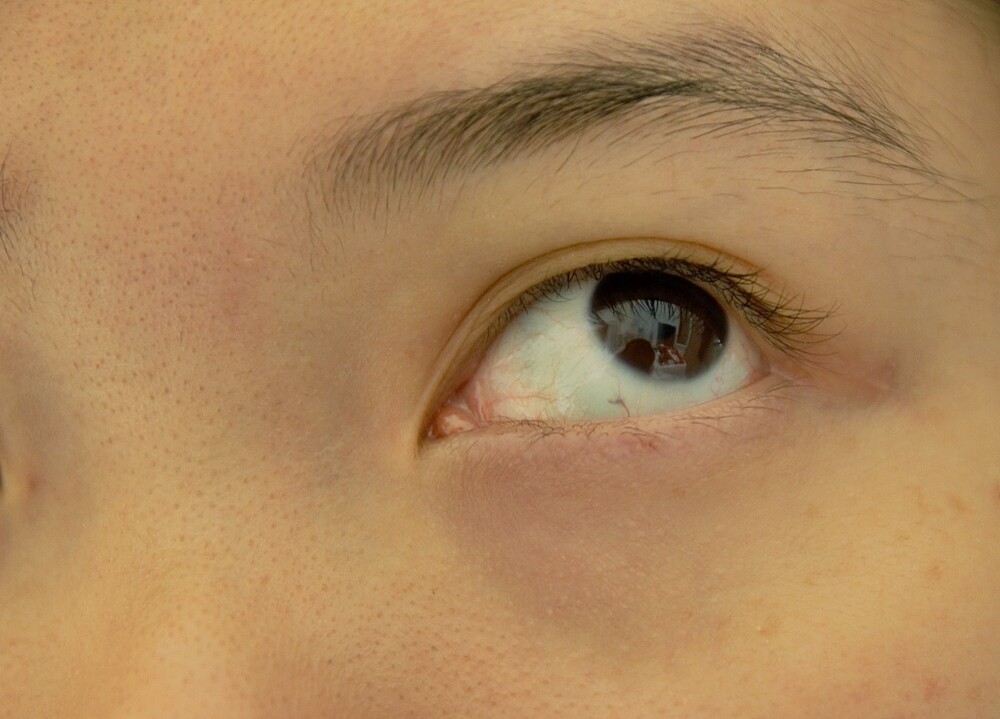Eye twitching is unpleasant and there is nothing you can do about it. Or can there? We’ll show you what you should do to stop your eyelid from twitching!
Eye twitching: Causes
Unfortunately, a small muscle in the eye responsible for closing the eyelid is very susceptible to disturbances and stimuli. And in these cases it reacts with a cramp, like a twitch. This can affect the upper eyelid, but also the lower eyelid. Possible causes for twitching eyes are:
- Magnesium deficiency
- Vitamin B12 deficiency
- Too much caffeine, alcohol or nicotine
- Lack of fluid
- Lack of sleep
- Stress
- Eye strain
You can do that
When the eyelid twitches, the body wants to tell us something with this symptom – but usually the eyelid twitching is harmless and can be easily controlled. Try the following tips:
Eat high in magnesium
Among other things, magnesium is important for muscle function in the body. Since the body cannot produce magnesium itself, we have to take it in through food. If there is a deficiency, it is possible that muscle twitches or calf cramps occur in other places as well. You can cover your magnesium requirements with conventional foods, for example with:
- Whole grain products
- Pulses
- Green vegetables
- Nuts
- Seeds
- Cereals
Compensate vitamin B12 deficiency
A vitamin B12 deficiency can also promote a twitchy eye. The body does not produce the important vitamin B12 itself, but with the right nutrition you can prevent or compensate for a deficit. Therefore, regularly eat the following foods: meat, fish, eggs and dairy products. Since vitamin B12 is contained in animal products, people on a vegan/vegetarian diet can also take food supplements.
Abstention from caffeine, alcohol and nicotine
Alcohol and nicotine are nerve poisons! Reduce your consumption or even give it up completely (and see what happens to your body after you quit smoking…). Too much caffeine can also be a cause and should therefore be avoided. Remember: not only coffee contains caffeine, but also some soft drinks.
Drink enough
Even a slight dehydration can weaken the muscles. But of course, coffee or something similar will not help. You can’t go wrong with water and unsweetened tea.
Sleep well enough
Lack of sleep damages the nerves and may lead to eye twitching. Try to get enough sleep. Perhaps gentle yoga exercises will help you with sleep disorders.
Avoid stress and stay calm
A nervous eye twitch is probably caused by stress. Then a long-term strategy against stress works best: Relaxation exercises such as progressive muscle relaxation or breathing exercises as well as yoga or meditation help you to better deal with stress and relax. You can find even more concrete tips and exercises here: Reduce stress and stay calm.
Breaks for the eyes
Been sitting at your PC or looking at your smartphone in the office for too long? This can quickly lead to tired or irritated eyes (read more about this here: This is how much smartphones harm our eyes). Therefore, avoid TV, tablet & co. after work to save your eyes. During working hours, you can prevent overexertion by taking regular short breaks. Breaks of five to ten minutes per working hour are recommended – yes, practice usually looks different. However, it is important that you alternate between close and distant vision, so take a look out of the window into the distance.
When to see the doctor?
If you just have an occasional eye twitch, there’s probably a harmless cause behind it. If it is frequent or very persistent, you should see a doctor. This also applies if you have other symptoms, such as worsening vision, drooping eyelids, inflammation, or tingling in your fingers.

